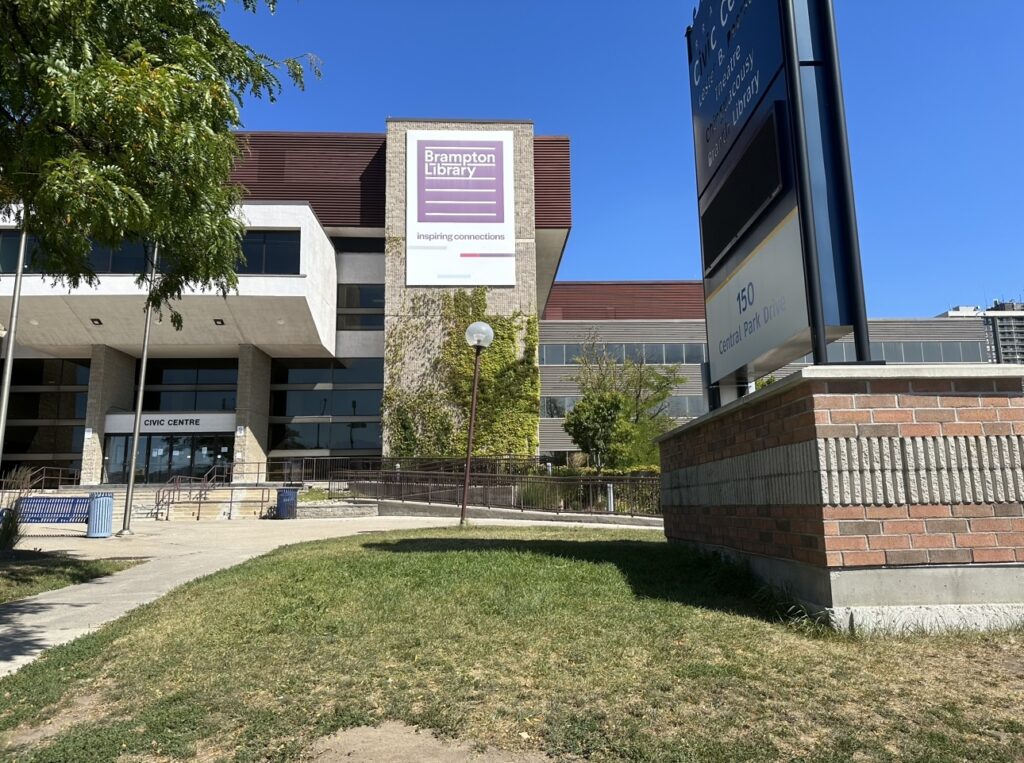
By encouraging students to pursue family medicine, Toronto Metropolitan University’s (TMU) new medical school in Brampton, Ont., could improve the city’s shortage of family physicians, doctors said.
The medical school, which will open next year, has adopted a focus on primary care programs, according to Dr. Jobin Varughese and TMU president Mohamed Lachemi. Primary care programs include family medicine, internal medicine, pediatrics and geriatric medicine.
Brampton has a significant shortage of family physicians, with an estimated 74 family doctors per 100,000 residents in 2021, compared to the national average of 124 doctors per 100,000 residents, according to a 2022 article in the Globe and Mail.
“I think the system is the sickest thing in the healthcare system right now,” said Varughese, the interim assistant dean of primary care education at TMU’s medical school and president-elect of the Ontario College of Family Physicians (OCFP).
Varughese, who was born and raised in Brampton, said that only about 10 per cent of Brampton’s residents can access comprehensive primary care.
The city’s family doctor shortage is part of a larger trend in Ontario, as every region in the province is currently experiencing a shortage of family physicians, according to the Ontario Medical Association (OMA).
Last year, the OCFP reported that one in four Ontarians will not have a family doctor by 2026.
In their first year, Varughese said, students will be able to take a course that allows them to spend time in primary care clinics.
Lachemi said it is important that the school attracts prospective students from Peel Region to mitigate the community’s family doctor shortage.
“More family doctors and generalist physicians are what our healthcare system needs, especially right now,” he said. “Our medical school, we think, could be part of the solution.”
TMU’s medical school is following an approach developed by the Northern Ontario School of Medicine (NOSM). The independent medical university, founded in 2005, has a unique program that focuses on community-based family medicine, said Sarita Verma, president and dean of NOSM.
Several Canadian universities that are in the process of opening new medical schools – including TMU, York University, Simon Fraser University, and Cape Breton University – have been interested in NOSM’s success, she said.
“These new medical schools have to solve the problems that no one else is solving,” Verma said.
According to the NOSM website, 52.67 per cent of NOSM graduates choose family medicine as their first choice for residency — almost 15 per cent more than the average for all Canadian applicants.
During the admissions process, NOSM prioritizes recruiting from northern Ontario. “We believe in what we call ‘in the North, for the North, by the North,’” Verma said.
Over half of NOSM’s graduates go on to work in the north, an area of Ontario with a particularly critical shortage of physicians.
NOSM’s curriculum supports distributed community engaged learning, in which students are brought outside of the classroom to explore clinical settings in Northern Ontario communities.
Verma, a family doctor herself, said larger medical schools, like the University of Toronto’s Temerty Faculty of Medicine, do not emphasize family medicine. “They produce scientists,” she said.
By contrast, she said several similarities will be apparent between NOSM and TMU’s medical school curriculum. The two universities signed an affiliation agreement on Jan. 22., which she described as an evolution of a relationship that began in early 2023, when TMU first approached NOSM.
Discussions so far have included exchanges about Indigenous health, global health and interprofessional education, Verma said. She said both schools are enriched by this collaborative relationship, in an environment where many relationships are highly competitive.
“We’re the two newest (schools) on the block,” Verma said. “So we have a lot to learn from each other about evolution and how to grow.”
Both NOSM and TMU share a commitment to equity, diversity and inclusion, Varughese said. As part of these commitments, TMU’s new medical school aims to build partnerships with local Brampton organizations, looping them into coursework to support community engagement.
“I can’t teach people about being South Asian, but we have a lot of community organizations that can really do that knowledge translation with us and walk in step with us,” Varughese said.
Reporter, On The Record, winter 2024

